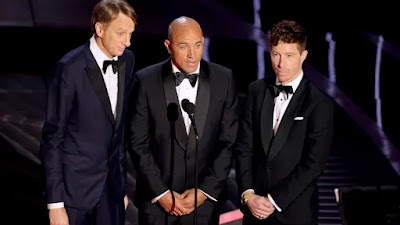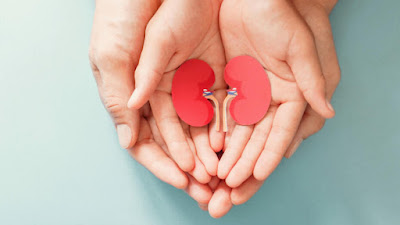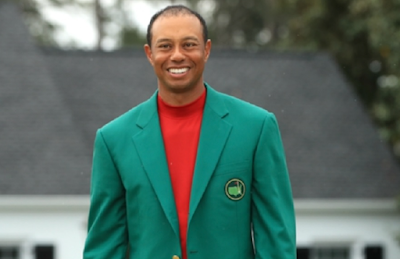In her weekly e-mail "Five Things Making Me Happy" Gretchen Rubin asks, "Are you spring cleaning? Hark Audio curated spring-cleaning tips from seven different podcasts, including Happier. Very helpful ideas." I should have known this timely topic would appeal to loyal listeners. Vodka, Spit and Coke: How to Spring Clean like an adult" wins the prize for the most creative podcast title I've heard in while.
Are you Spring cleaning? What does that look like in your household? (and what might it mean to do so like an adult?! stay tuned!) One answer is reducing my physical and virtual inbox closer to zero. With Spring break this week, I have set a deadline to either read or toss those magazine articles and emails I have intended to read by the conclusion of the Easter Octave. So here goes!STILLPOINT
"Outlined against a dark November sky...." this photograph of interhall football by Matt Cashore '94, features the Keenan Hall Knights practicing under lights. Lights! replete with a video tower, I wonder how many teams tape their games and review plays. Interhall, you've come a long way, baby!
In Sports and Spirituality, I ask my students often to name rituals and traditions that have meaning for them in both domains. To be a student at both Saint Francis High School and at Notre Dame is to know that the lines between the two aren't always separate.
"Countless campus traditions have waxed, waned and transformed over time to meet the needs of a changing student body within a changing nation. What do these changes — and the firm traditions — say about the University and its culture?"
What a great question for students and alumni to consider and answer!
“Everyone shows up at Notre Dame at a different point in time. Those traditions are one way that you connect to that larger history,” says Katherine Walden, an assistant teaching professor of American studies who offers a Football in America course.
I think it's important for young people to know what went before them, what they share in and what they may contribute. “All traditions serve a purpose, and they have to be able to organically grow or fade,” Collier says. He sometimes is troubled by efforts to market longstanding campus customs, like the pep rallies, rather than allowing them to blossom or die naturally. Students are drawn to the authentic, he says, which brings us to his challenge to the next generation of students: “What traditions will you bring to Notre Dame? What customs can you start?”
Echoes: Remembering the Flamboyant Verly E. Smith by Margaret Fosmore '85It's hard to hear about the success of a football team without at least a nod if not a game ball given to the Strength and Conditioning Coordinator. Irish football fans breathed a massive sigh of relief when Matt Balis, Director of Football Performance announced that he would stay following Coach Brian Kelly's departure to LSU. I hope somewhere in his office is a photo of Notre Dame's original strength and conditioning coordinator: Mr. Verly Smith.
"Hired to heal the muscle strains and other injuries of Rockne’s players — records indicate Smith was probably Notre Dame’s very first African American employee — he also took on trainer duties for the basketball, track and baseball teams."
"In the early 1920s, Smith was hired as a trainer for the Notre Dame football team. His grandsons don’t know how or when he first met Knute Rockne, or whether it was Rockne who offered the job, but Smith was the team’s trainer during the height of Rockne’s coaching career, including in 1924 — the season of the Four Horsemen, the famous Irish backfield."
Flashy and flamboyant he was an entrepreneur, an innovator, a husband, father and grandfather, trainer and gambler—Verly E Smith is an important character in the legend and lore of Notre Dame football. I feel the need to ask Coach Balis about that photo....
Timothy Francis Welsh coached the men’s swimming team for three decades, leading both men’s and women’s swimming for 10 of those years. His teams won the Big East championship six times, earned the University’s first invitations to the NCAA Championship meet, garnered its first All-American honors, set multiple records and sent swimmers to the Olympic Games.
In 2014, the College Swimming Coaches Association of America (CSCAA) presented Welsh with its highest honor, the National Collegiate and Scholastic Swimming Trophy. But the most eloquent testimonial about the quality of his leadership may have been the former swimmers who visited their coach during the final leg in his battle with pancreatic cancer. Welsh died June 2 at age 76.
As a coach, he motivated his swimmers to pursue personal excellence and encouraged a familial devotion to teammates. Rarely was that sense of family more apparent than in the wake of a fatal bus crash in 1992, when the women’s team was returning to campus from a meet.
My good friend and podcast partner, Haley Scott DeMaria is one of those swimmers who not only survived the bus crash but was with Coach Welsh until the end. Through her ongoing personal testimony of his impact, I have a much stronger sense of what it means to be not a good coach, but a great one. Though swimming is an individual sport, the members of his squads know what is possible when we truly give of ourselves for the good of the team. Thank you, Coach Welsh. You are missed!
The (Next) Line That Can’t Be Crossed by Jason Kelly '95
If you're looking to gain a perspective on where college athletics is going—including the impact of NLI and "putting paid to amateurism" take your time and read up here and now.
As the subtitle suggests: The history of college athletics can be measured in a series of singular moves that traditionalists said were steps too far. The story starts with a phone call for Coach Parseghian about a football game rescheduled at ABC’s behest. "Instead of a routine November weekend road trip to Georgia Tech, the defending champion Fighting Irish would open the season with a Monday night prime-time spectacle in Atlanta under stadium lights and the metaphorical kliegs of national television." The year was 1974.
Less than 20 years later, the NBC became the University's official broadcasting partner. "This season, Notre Dame dipped a toe into live-streaming with the home opener against the University of Toledo available only on NBC’s subscription service, Peacock. Director of athletics Jack Swarbrick ’76 emphasized that he — not NBC — made that decision, which upset many fans accustomed to free, over-the-air access to Fighting Irish football. He chose the Peacock experiment with one eye on the program’s history and another on its future." What's next? As a Notre Dame football fan, one thing is for sure—we'll find out.
What's funny is that Red Smith, stated a poignant question that applies to our world today. In 1927 he wrote, “The concept of intercollegiate sports as a leisure-time recreation is long out of date. But whatever became of the concept of athletics as part of a balanced academic program, the mens sana in corpore sano approach, the notion that the coach is a professor whose classroom measures 360 feet by 160?” Are we not asking those same questions nearly 100 years later?
Conclusion
If Spring cleaning goes well, I'll have the Sports and Spirituality review of the Spring issue by the end of the week. Hope springs eternal!
Photo Credits



















